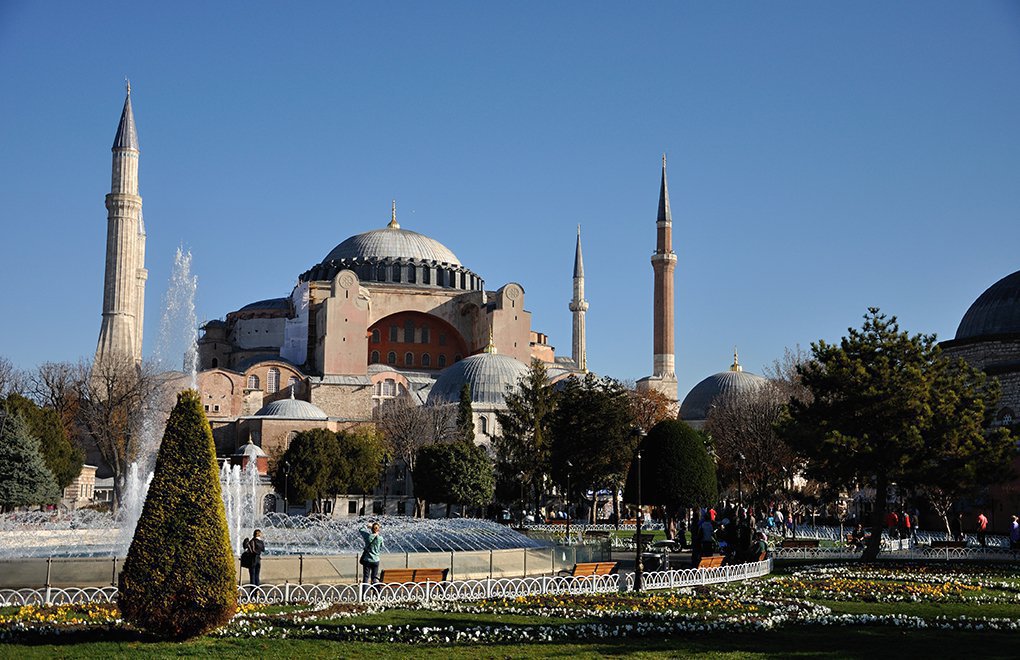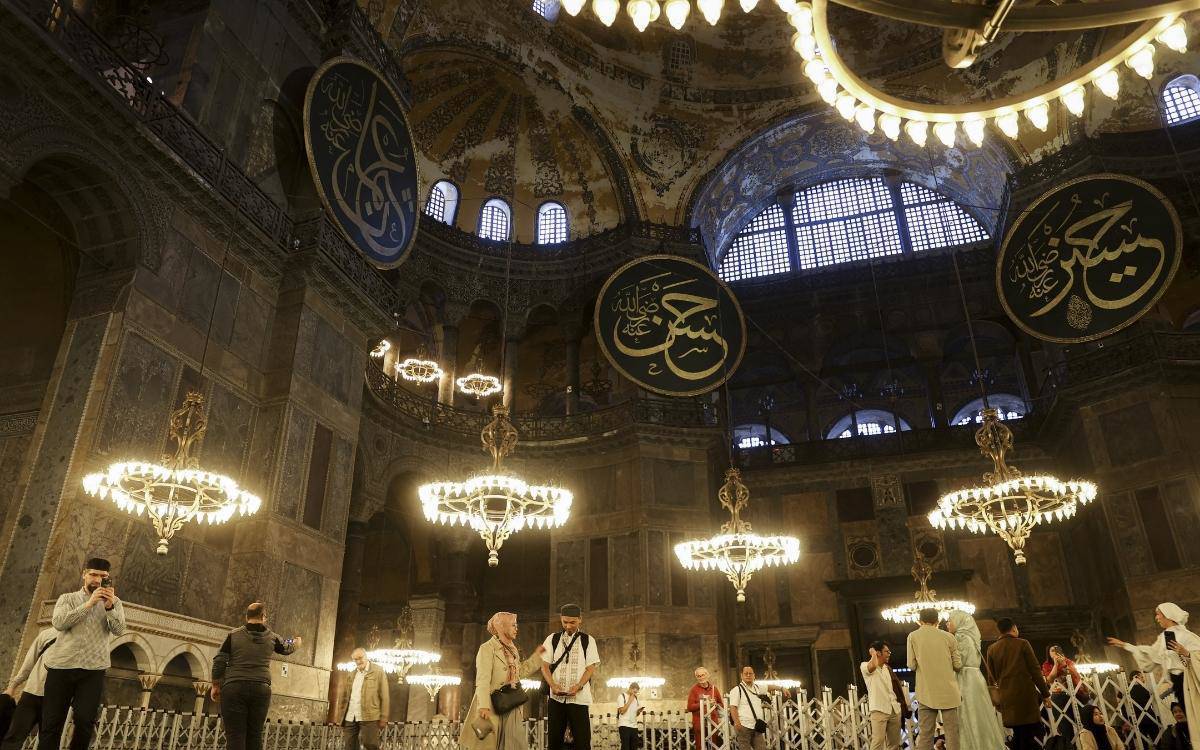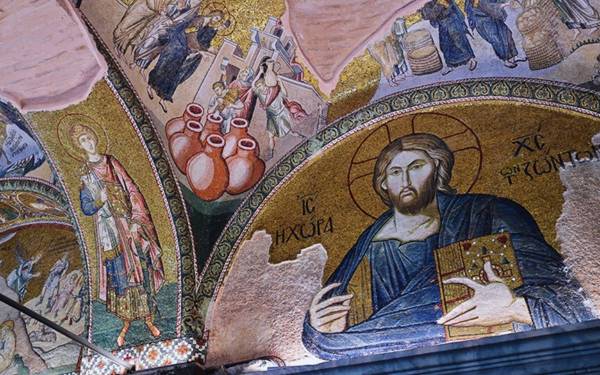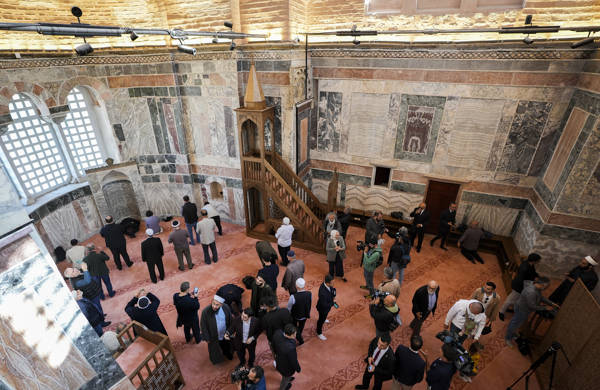Culture and Tourism Minister Mehmet Nuri Ersoy held a press conference at the İstanbul Atatürk Cultural Center (AKM) to unveil the latest developments in Turkey's tourism sector, along with significant changes coming to one of its most iconic landmarks, Hagia Sophia Mosque.
Ersoy shared details about a new visitor management system set to be implemented at Hagia Sophia, emphasizing its status as a UNESCO World Heritage Site. Starting from January 15, 2024, foreign tourists visiting Hagia Sophia will be charged an entrance fee, marking a change from the previous practice.

COUNCIL OF MINISTERS DECREE ANNULLED
Hagia Sophia handed over to Presidency of Religious Affairs
Ersoy said, "Hagia Sophia is on the UNESCO Cultural Heritage List. We are proceeding in consultation with UNESCO. Upon UNESCO's recommendation, starting from January 15, we will introduce a visitor management system at Hagia Sophia. This will enhance the quality and security of visits."
Notably, Turkish citizens visiting Hagia Sophia for religious purposes will not be affected by this change, as there will be no charge for their entry.
Foreign visitors will experience a shift in their entrance point, moving to the upper-level gate near Topkapi Palace. This strategic change aims to reduce congestion and elevate the quality of the visit and religious experience for tourists.
Furthermore, Ersoy mentioned that visitors to Hagia Sophia will have access to information in 16 different languages through a dedicated mobile application.
Hagia Sophia's conversion
Hagia Sophia is a 1,500-year-old building that was originally built as an Orthodox Christian cathedral by the Byzantine Empire. It was converted into a mosque by the Ottoman Turks in 1453, and then into a museum by the secular Turkish Republic in 1934. It is a UNESCO World Heritage Site and a symbol of Istanbul’s rich cultural and religious heritage.
In July 2020, President Recep Tayyip Erdogan ordered the conversion of Hagia Sophia back into a mosque, after a court annulled the 1934 decree that made it a museum.
The decision sparked criticism from many countries and organizations, such as Greece, the European Union, UNESCO, and the World Council of Churches, who argued that it violated the universal value and status of Hagia Sophia as a monument of world civilization13.
(TY/VK)








